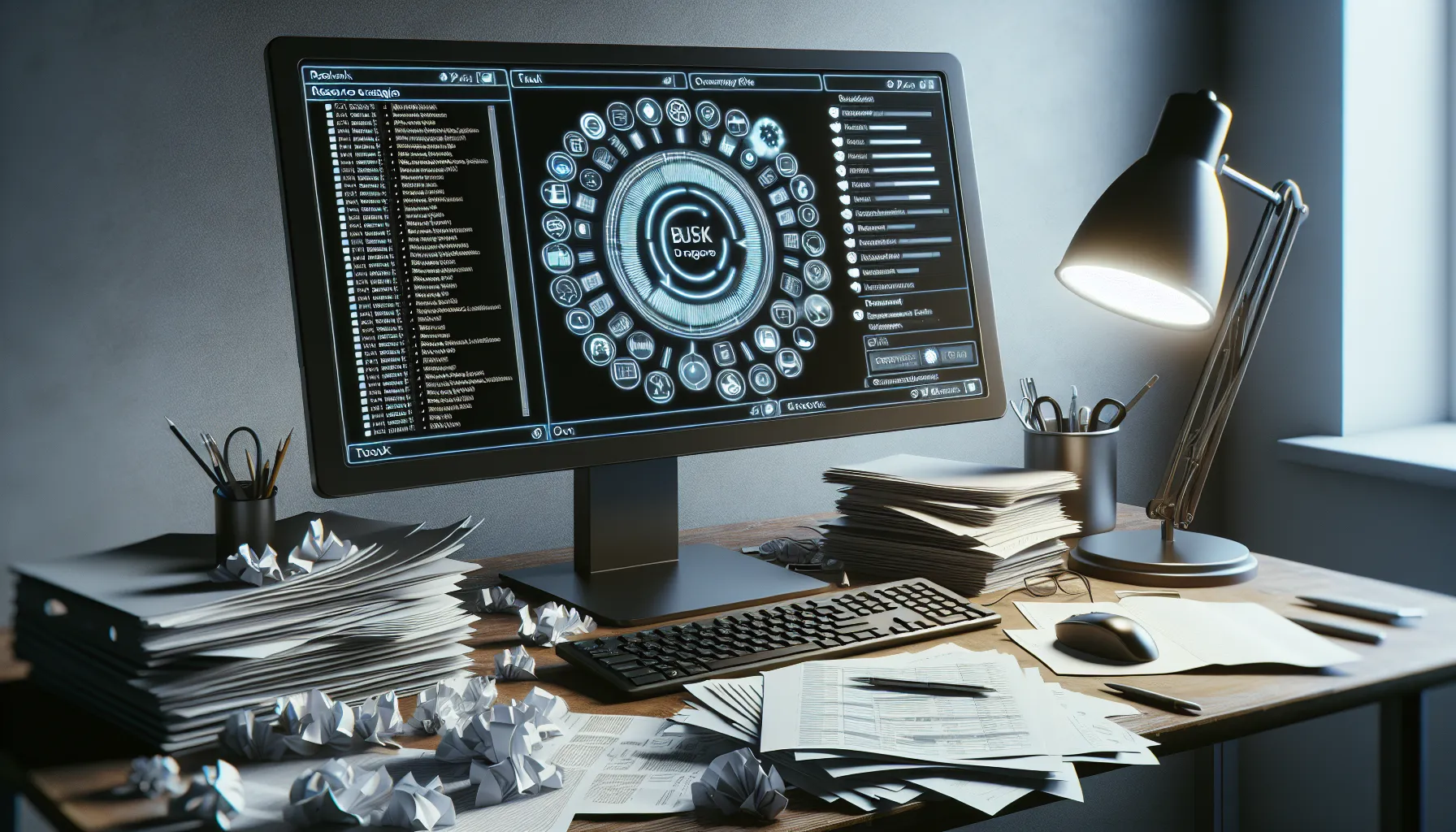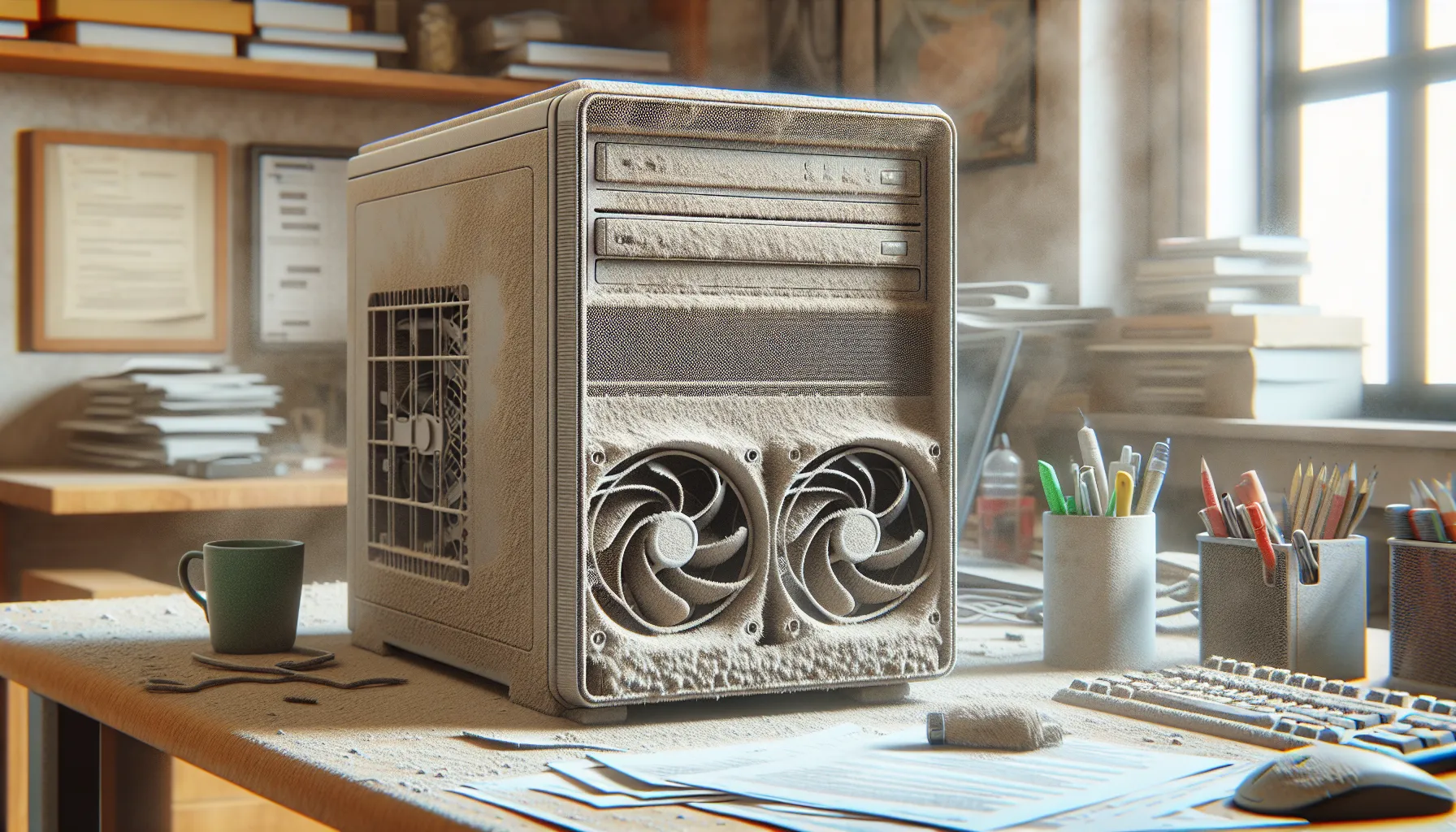Key Takeaways
- A slow computer is often caused by insufficient RAM, low storage space, or outdated hardware and software.
- Excessive background processes and unnecessary programs drain resources, significantly impacting performance.
- Malware, bloatware, and outdated drivers or operating systems can slow down your system; regular updates and antivirus software are essential.
- Hardware issues like overheating, dust accumulation, or failing drives can lead to significant slowdowns; proper maintenance and upgrades are key.
- Solutions like limiting startup programs, updating software, or upgrading RAM and SSD can dramatically boost performance.
- Seek professional help for recurring crashes, file recovery, or complex hardware replacements beyond your expertise.
We’ve all been there—sitting in front of a computer that seems to take forever to load a simple webpage or open a file. It’s frustrating, isn’t it? A slow computer can turn even the simplest tasks into a test of patience, and it always seems to happen when you need it the most. I know how annoying it can be to deal with that spinning wheel or laggy response.
Common Causes Of A Slow Computer
Identifying what’s slowing down your computer can save time and improve its efficiency. Here are a few common culprits.
Insufficient RAM Or Storage Space
Low RAM or limited storage affects a computer’s ability to process tasks quickly. Without enough RAM, programs compete for memory, slowing performance. Storage that’s nearly full can hinder file retrieval and temporary file creation. For example, devices with less than 8GB of RAM or 95% storage usage often experience significant slowdowns.
Outdated Hardware Or Software
Old components or software can’t keep up with modern demands. A CPU or hard drive designed over a decade ago may struggle with current applications. Similarly, software that’s outdated often encounters compatibility problems. For instance, running an old operating system like Windows 7 with current programs can cause frequent lags.
Excessive Background Processes
Too many active background processes drain system resources, reducing performance. Apps like cloud sync tools, antivirus scans, or messaging clients can overwork the CPU and RAM. For example, having multiple browser tabs and resource-hungry apps open simultaneously slows most systems, especially older models.
Software-related Issues

Software problems often slow down computers by consuming resources unnecessarily. Identifying and addressing these issues improves performance significantly.
Virus And Malware Infections
Malware strains system resources by running malicious processes in the background. Spyware, for example, continuously tracks data, while ransomware encrypts files, blocking access. Install and maintain reliable antivirus software for detection and removal. Regularly updating software patches security vulnerabilities.
Bloatware And Unnecessary Programs
Pre-installed software and unused apps take up valuable system resources. Trialware (e.g., software demo versions) often runs background processes, increasing CPU usage. Disable or uninstall programs that aren’t actively needed, and use tools like Task Manager to check for high-usage programs.
Outdated Operating System Or Drivers
Using outdated OS versions or drivers limits a computer’s ability to perform optimally. Older drivers, like those for graphics or network adapters, might cause compatibility issues with newer software. Enabling automatic updates and periodically checking for driver updates ensures smooth operation and better system stability.
Hardware-related Issues

Hardware-related problems often lead to significant slowdowns in computer performance. Identifying these issues can help restore speed and efficiency.
Overheating Or Dust Accumulation
Overheating reduces performance by triggering thermal throttling, where the system slows down to prevent damage. Excessive dust accumulation in the fans, vents, or internal components restricts airflow, causing overheating. Cleaning the fans, using compressed air for vents, and ensuring proper ventilation can improve cooling.
Failing Hard Drive Or SSD
A failing hard drive or SSD struggles to read and write data, leading to longer file access times and frequent system freezes. Unusual noises, bad sectors, or frequent errors indicate hardware failure. Backing up important data and replacing the drive with a reliable SSD or HDD is essential for smooth functioning.
Limited CPU Or GPU Capabilities
Underpowered CPUs and GPUs can’t handle demanding applications or multitasking effectively. Older processors or graphics cards may lag during modern software usage or gaming. Consider upgrading these components or using lightweight software to accommodate system limitations.
Troubleshooting And Fixes

Addressing a slow computer involves diagnosing specific issues and applying targeted solutions. By focusing on software improvements, startup management, and hardware upgrades, users can restore system performance effectively.
Boosting Performance With Software Updates
Updating software ensures compatibility with modern applications and improves system efficiency. I check for operating system updates regularly to access performance enhancements and security patches. Updating drivers, especially for graphics and network cards, can resolve hardware communication issues, reducing slowdowns. Uninstalling outdated or unsupported versions of applications further optimizes resource usage.
Optimizing Startup Programs
Limiting startup programs can dramatically reduce boot times. I review the list of programs that launch during startup by accessing the Task Manager on Windows or System Preferences on macOS. Disabling non-essential applications, like messaging apps or third-party software not required immediately, conserves system resources. This step not only quickens startup but also frees memory for other tasks.
Upgrading Hardware Components
Upgrading outdated hardware boosts overall performance. Installing additional RAM enhances multitasking capabilities, while replacing a mechanical hard drive with a solid-state drive (SSD) reduces loading times significantly. When handling resource-intensive tasks like video editing, upgrading the CPU or GPU improves processing power. I recommend choosing components compatible with the existing system to prevent compatibility issues.
When To Seek Professional Help
Resolving some issues might require expertise that’s beyond basic troubleshooting. If the computer shows frequent crashes, blue or black screen errors, or fails to boot entirely, it’s time to consult a professional. These could signal hardware failures, corrupted system files, or deep-rooted malware infections.
Contacting an expert becomes essential if hardware upgrades, like replacing a hard drive or adding RAM, feel too complex or require tools you’re unfamiliar with. Professionals have the skills to perform these tasks efficiently, reducing the risk of damage.
Data recovery is another situation requiring professional assistance. If a hard drive fails or files become inaccessible, specialists can retrieve data securely using advanced methods.
System performance that doesn’t improve after applying software fixes or cleaning up hardware suggests deeper underlying problems. In these cases, professional diagnosis helps identify and resolve the root cause without guesswork.
Conclusion
A slow computer can be incredibly frustrating, but the good news is there are plenty of ways to tackle the problem. Whether it’s addressing software issues, upgrading hardware, or simply keeping your system clean and updated, small changes can make a big difference.
If you’ve tried everything and your computer still struggles, don’t hesitate to reach out to a professional. Sometimes, expert help is the quickest path to getting your system back on track. Remember, a little maintenance now can save you a lot of headaches later!
Frequently Asked Questions
Why is my computer so slow?
A slow computer can result from insufficient RAM, low storage space, outdated hardware, excessive background processes, or software issues like viruses, bloatware, or outdated drivers. Identifying and addressing these factors can help improve your system’s performance.
How can I speed up my computer?
You can speed up your computer by updating software and drivers, disabling unnecessary startup programs, uninstalling unused applications, removing malware with antivirus software, cleaning hardware components, and upgrading hardware like RAM or storage.
Does a virus make computers slower?
Yes, viruses and malware often run malicious processes in the background, consuming system resources and causing significant slowdowns. Installing reliable antivirus software can help detect and remove these threats.
Should I upgrade my hardware to improve performance?
If your computer is still slow after applying software fixes, upgrading hardware like adding more RAM, replacing a traditional hard drive with an SSD, or improving cooling systems can significantly boost performance.
How do background processes affect computer speed?
Excessive background processes drain resources like CPU, RAM, and power, slowing down your computer. Disabling unnecessary programs running in the background can improve system efficiency.
What is bloatware, and how does it impact performance?
Bloatware refers to pre-installed or unnecessary programs that take up storage and system resources. Removing or disabling such programs can free up space and enhance your computer’s speed.
Why does my computer overheat, and how can I fix it?
Overheating often occurs due to dust accumulation in fans and vents, causing thermal throttling. Cleaning these components improves cooling and prevents performance drops.
Should I enable automatic updates?
Yes, enabling automatic updates ensures your operating system and drivers stay updated with the latest security patches and performance improvements, helping your computer run smoothly.
When should I consult a professional for a slow computer?
Consult a professional if your computer frequently crashes, displays blue or black screen errors, fails to boot, or does not improve even after software fixes and hardware cleaning.
How can upgrading to an SSD improve performance?
Upgrading to an SSD significantly enhances performance by speeding up boot times, reducing file access delays, and improving the overall responsiveness of your computer compared to a traditional hard drive.

